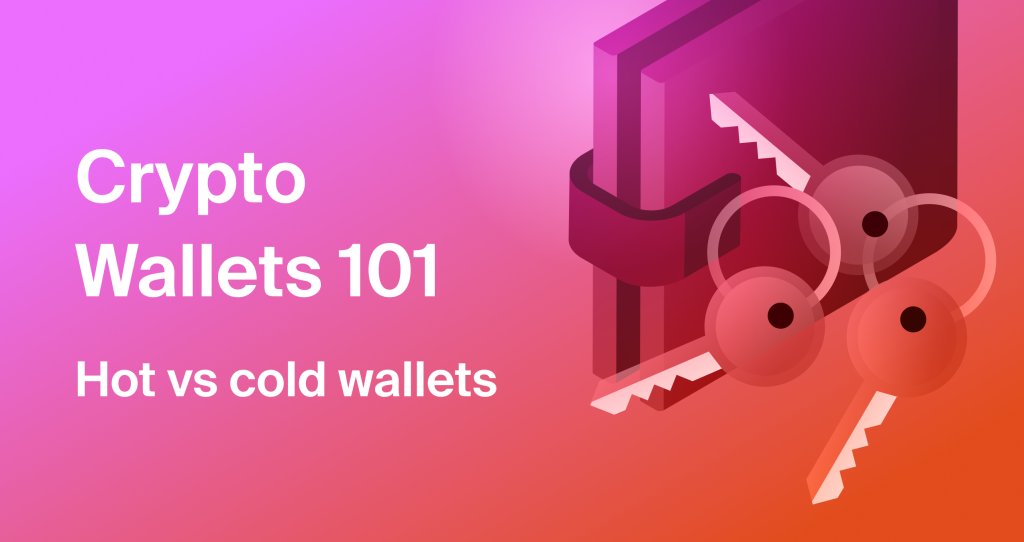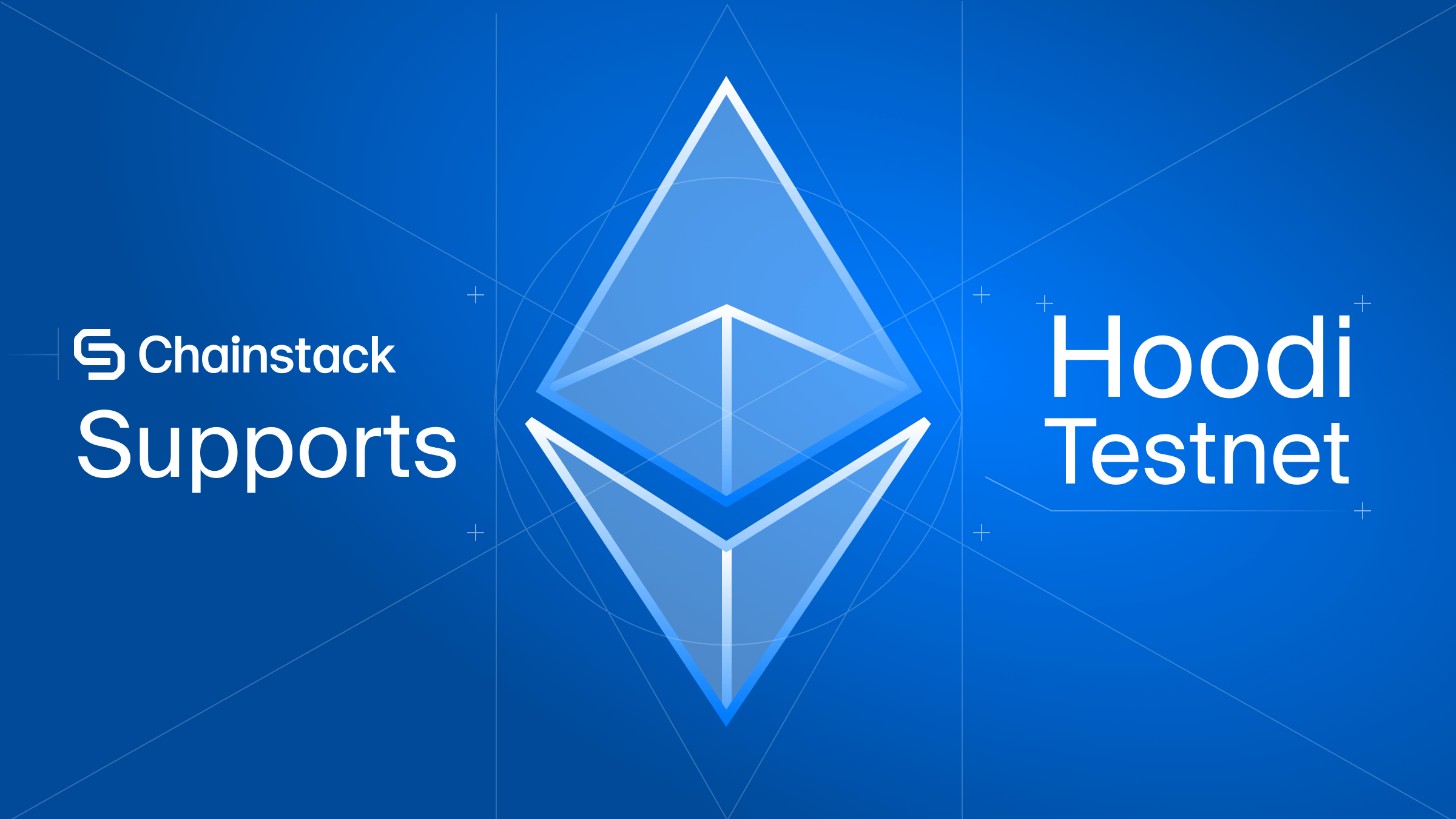Crypto Wallets 101: Hot wallets vs. cold wallets explained

Navigating the vast and complex realm of hot and cold crypto wallets can be daunting, with infinite options and each boasting distinct features. Our in-depth article is designed to unravel the complexities surrounding hot and cold wallets, equipping you with the knowledge to make a well-informed decision to safeguard your precious crypto.
By comprehending these essential aspects, you can fine-tune your crypto wallet selection based on your specific investment approach, risk appetite, and long-term financial objectives. Grasping the fundamental principles underpinning the hot wallets vs. cold wallets debate is vital, as it will dictate the optimal crypto wallet choice for your specific use case.
Our guide will empower you to securely and confidently traverse the ever-evolving landscape of cryptocurrencies. So, without further ado, let’s dive in!
What are hot wallets?
Hot wallets are any blockchain wallet that connects to the internet and runs as software on your computer or mobile phone. They are a popular choice for managing and accessing cryptocurrencies, as they provide the convenience of constantly being connected to the internet. They give you quick and easy access to your crypto assets at the expense of potentially exposing your private keys to hackers if you are not careful.
There are several types of hot wallets, including:
Web wallets
Accessible through browser plugins or directly on a website, centralized cryptocurrency exchanges (CEXs) such as Binance offer custodial wallets as a hassle-free way of storing multiple cryptocurrencies. Your private keys are entirely hosted on their remote servers, ensuring a more user-friendly experience but placing the security of these keys solely in the hands of the CEX. However, web wallets such as Argent are non-custodial, storing your private keys directly on your hard drive, usually in your browser’s database.
Mobile wallets
As the name suggests, mobile wallets are smartphone applications that store your private keys on your mobile device. They offer the convenience of managing and accessing your cryptocurrencies on the go but can be vulnerable if your device is compromised. Trust Wallet is an excellent example of a mobile-centric wallet that supports multiple cryptocurrencies and provides an intuitive user interface.
Desktop wallets
Desktop wallets are software applications installed on your personal computer. They store your private keys on your local hard drive or an encrypted file, providing easy access while your computer is online. However, they can be vulnerable to malware or hacking if your computer’s security is compromised. Exodus is a well-known desktop wallet that offers a user-friendly interface and supports a wide range of crypto.
Pros of hot wallets
1. Convenience – Hot wallets are easily accessible, allowing users to quickly access and manage their cryptocurrencies without going through additional steps or hardware.
2. User-friendly – They often feature intuitive interfaces, making them suitable for beginners and those looking for a simple way to manage their digital assets.
3. Suitable for small amounts – Hot wallets are ideal for storing small amounts of cryptocurrencies that you frequently use for daily transactions or trading.
Cons of hot wallets
1. Vulnerability to cyberattacks – As hot wallets are connected to the internet, they are susceptible to hacking, malware, and phishing attacks, which can compromise the security of your private keys and, ultimately, your digital assets.
2. Dependence on third-party security – In the case of custodial web wallets, users rely on the security measures implemented by the service provider, which can vary in effectiveness and quality.
Hot wallets are a convenient and user-friendly option for managing cryptocurrencies but come with inherent security risks due to their constant connection to the internet. It is essential to consider these risks carefully when deciding between a custodial or a non-custodial hot wallet to store your digital assets.
What are cold wallets?
Cold wallets are a more secure alternative to hot wallets for storing private keys, as they keep your digital assets offline and away from potential online threats. They are offline storage solutions that keep your private keys disconnected from the internet, minimizing the risk of hacking, malware, and phishing attacks.
There are several types of cold wallets, including:
Hardware wallets
These are dedicated physical devices, often resembling USB drives, specifically designed to store private keys securely. They employ advanced security features and encryption methods to protect your digital assets, and they only connect to a computer or mobile device when needed for transactions. Some popular hardware wallets include Ledger, Trezor, and KeepKey.
Paper wallets
Paper wallets are physical documents containing your private keys, either printed as plain text or as QR codes. While low-tech, they offer a simple and cost-effective method for keeping your private keys offline, provided that the paper wallet is stored securely.
Pros of cold wallets
1. Enhanced Security – By keeping your private keys offline, cold wallets provide a higher level of security against online threats such as hacking, malware, and phishing attacks.
2. Greater Control – Cold wallets, mainly hardware wallets, give you complete control over your private keys without relying on third-party services for security.
3. Ideal for Long-Term Storage – Cold wallets are well-suited for storing large amounts of cryptocurrencies you don’t need to access frequently, making them a better choice for long-term investments.
Cons of cold wallets
1. Less Convenience – They can be less convenient for frequent transactions, as they require connecting a hardware wallet to a device or scanning a paper wallet’s QR code to access your assets.
2. Physical Security Concerns – Cold wallets, especially paper ones, require secure physical storage to prevent theft, damage, or loss. This may involve using a safe deposit box or other secure storage methods.
3. Higher Initial Cost – Hardware wallets can be more expensive than hot wallet solutions due to the specialized hardware and technology involved. However, this cost can be justified by the increased security provided.
Cold wallets offer a more secure way to store private keys and protect digital assets, particularly for long-term storage and more significant amounts of cryptocurrencies. While they may be less convenient for frequent transactions, the enhanced security, and control they provide make them an essential consideration for anyone serious about the safety of their digital wealth.
Closing thoughts
The choice between hot and cold wallets ultimately depends on your specific needs, preferences, and, most importantly, your level of risk tolerance. Hot wallets offer convenience and ease of use, making them a good option for smaller amounts of crypto and frequent transactions. However, they come with a much higher vulnerability to online threats.
On the other hand, cold wallets provide enhanced security and control for long-term hodling, especially for whales, as they hoard substantial amounts of cryptocurrency. Understanding the pros and cons of each wallet type is essential to selecting the most suitable storage solution for your crypto assets.
Now that we’ve gone over the hot wallets vs. cold wallets dilemma, remember that the best strategy often involves a combination of hot and cold wallets to balance convenience, accessibility, and security. Stay informed about industry news, be vigilant, and always prioritize safety when handling crypto.
FAQ
Is Coinbase a hot or cold wallet?
Although Coinbase is primarily a centralized cryptocurrency exchange, it also offers a non-custodial blockchain wallet to store and manage cryptocurrencies. Since Coinbase’s wallet is accessed over the internet using a browser or mobile app, it is considered a hot wallet.
Are hot wallets risky?
Hot wallets are riskier compared to cold wallets because they are constantly online. This connection makes them more susceptible to hacking, malware, and crypto phishing attacks. However, if you take the necessary security precautions and only store small amounts of cryptocurrencies for frequent transactions, hot wallets are still a good choice.
Is MetaMask a hot or cold wallet?
MetaMask is defacto a hot wallet, as it is a browser extension that allows you to access and manage your cryptocurrencies on various blockchains through web-based applications. You can ensure the security of your MetaMask account by using strong passwords and enabling additional security features, such as hardware wallet integrations.
Can cold wallets be hacked?
Cold wallets are always more secure than hot wallets because they keep your private keys offline and away from potential online threats at all times. While it is challenging to hack cold wallets, they are not entirely immune to risks. Physical theft, damage, or loss of a hardware or paper wallet can happen to anyone. Therefore, it is crucial to be proactive, store your cold wallet securely, and always create backup copies of your private keys.
 Ethereum
Ethereum Solana
Solana TON
TON Base
Base BNB Smart Chain
BNB Smart Chain Sui
Sui Unichain
Unichain Aptos
Aptos TRON
TRON Ronin
Ronin zkSync Era
zkSync Era Sonic
Sonic Polygon
Polygon Gnosis Chain
Gnosis Chain Scroll
Scroll Avalanche Subnets
Avalanche Subnets Polygon CDK
Polygon CDK Starknet Appchains
Starknet Appchains zkSync Hyperchains
zkSync Hyperchains



























